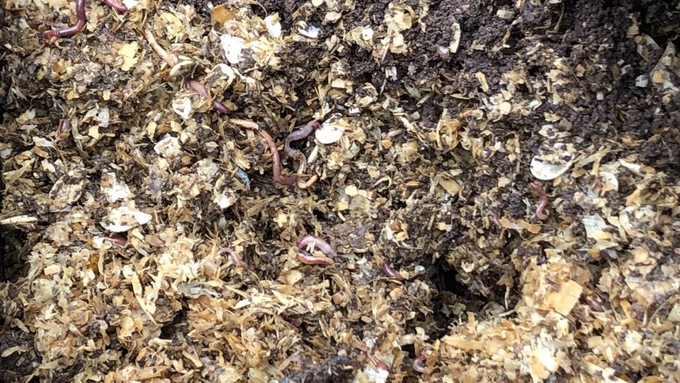
Master gardeners present special workshop

These wigglers are hard at work, making rich castings from kitchen and garden waste. Kathy Morrison
It's time to get wiggly! Become a worm wrangler and make garden gold.
Learn about worm composting during a special workshop Saturday, Oct. 22, at the Fair Oaks Horticulture Center. Advance registration is required and space is limited. The deadline to register is Oct. 14.
Presented by thr UCCE Sacramento County master gardeners, this fun workshop will show how to harness worm power to make rich, high-qaulity compost. According to the master gardeners, this neat, easy and odorless method of composting is ideal for indoor and outdoor locations."
Ideal for beginners, this class covers bin construction, bedding and food needs for worms, and how to "harvest" their castings.
Registration is $30, which includes all instructional materials, a worm bin and worms -- everything you need to get started.
The two-hour course starts at 10 a.m. Saturday, Oct. 22, and will be held outdoors, rain or shine, at the Fair Oaks Horticulture Center. No drop-ins are allowed and no refunds will be offered.
The Fair Oaks Horticulture Center is at 11549 Fair Oaks Blvd., Fair Oaks, just south of the Fair Oaks Library. For more information on UCCE master gardener activities, go to https://sacmg.ucanr.edu/?calitem=537195
P.S. SDG's Kathy Morrison offers this tip: Get a preview of what worm composting (and other composting) is all about by visiting the Composting Area during Open Garden Day on Wednesday, Oct. 12, 9 a.m. to noon at the Horticulture Center.
-- Debbie Arrington
Comments
0 comments have been posted.Sacramento Digs Gardening to your inbox.
Sites We Like
Garden Checklist for week of July 21
Your garden needs you!
* Keep your vegetable garden watered, mulched and weeded. Water before 8 a.m. to reduce the chance of fungal infection and to conserve moisture.
* Feed vegetable plants bone meal, rock phosphate or other fertilizers high in phosphate to stimulate more blooms and fruiting. (But wait until daily high temperatures drop out of the 100s.)
* Don’t let tomatoes wilt or dry out completely. Give tomatoes a deep watering two to three times a week.
* Harvest vegetables promptly to encourage plants to produce more. Squash especially tends to grow rapidly in hot weather. Keep an eye on zucchini.
* Pinch back chrysanthemums for bushy plants and more flowers in September.
* Remove spent flowers from roses, daylilies and other bloomers as they finish flowering.
* Pinch off blooms from basil so the plant will grow more leaves.
* Cut back lavender after flowering to promote a second bloom.
* It's not too late to add a splash of color. Plant petunias, snapdragons, zinnias and marigolds.
* From seed, plant corn, pumpkins, radishes, winter squash and sunflowers.